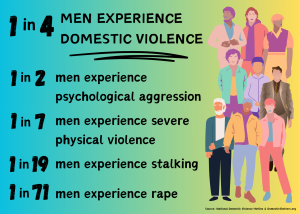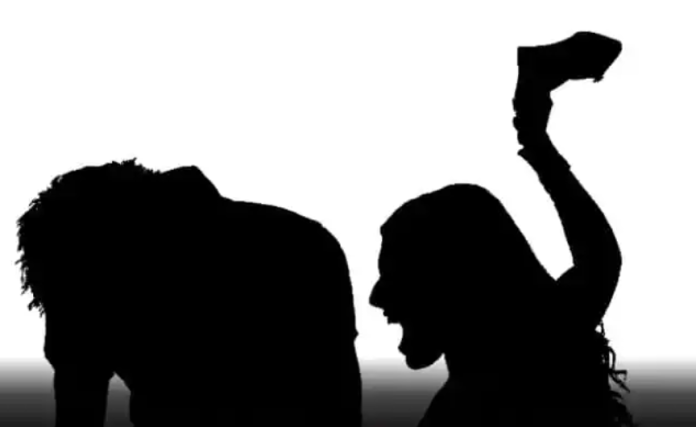Gender-Based Violence (GBV) remains a pervasive global issue, predominantly affecting women and girls. In Nigeria, an estimated 30 per cent of women aged 15–49 have experienced physical violence, according to the Nigeria Demographic and Health Survey (NDHS).
However, an often-overlooked aspect is that men are also victims of GBV. From domestic abuse and sexual assault to emotional and psychological manipulation, the forms of violence men endure are diverse, yet frequently overlooked.
Recent studies show that approximately 18 per cent of Nigerian men experience some form of domestic violence, including physical, emotional, and economic abuse.

Against these statistics, the experiences of male survivors remain shrouded in silence, stigmatisation, and societal neglect.
Experts, including Dr Hassan Ibrahim, a psychologist specialising in trauma, and Prof. Aisha Lawal, a gender studies scholar, argue for the inclusion of men’s voices in GBV discussions.
They believe that a comprehensive approach to tackling GBV must recognise men not only as perpetrators but also as victims and potential agents of change.
While women and girls disproportionately bear the brunt of GBV, men play a major role in its perpetuation and prevention.
Studies reveal that men are responsible for 85–90 per cent of reported GBV cases.
However, this statistic often oversimplifies the issue, ignoring the societal pressures and toxic masculinity that contribute to such behaviour.
“Men raised in environments that emphasise power, control, and dominance often internalise these messages.
They may resort to violence when they perceive threats to their authority, masculinity, or relationships,” Dr Ibrahim said.
Contrary to common perceptions, men also experience GBV in various forms, including intimate partner violence, sexual violence, and bullying.
Social stigma and cultural norms that demand men remain strong, invulnerable, and self-sufficient often prevent male survivors from speaking out.
Prof. Lawal notes, “This silence isolates male victims, making it difficult for them to access the support they need.
“We must create safe spaces and break down harmful stereotypes to address this issue.
“By opening up discussions about male victimhood and promoting healthy masculinity, we can create an environment where violence against anyone, regardless of gender, is not tolerated”.
Jay-jay Ola, a 48-year-old former victim of domestic violence at the hands of his wife, endured years of physical and emotional trauma.
“For years, I stayed silent. People didn’t believe me because I was a man; they thought I must be the one causing the trouble”.
Ola’s experience reflects the societal pressure on men to suppress vulnerability.
His male friends often dismissed his trauma, telling him to ‘man up’. Only after years of counselling did Ola recognise himself as a victim.
Finding support in a group for male survivors, he realised he was not alone.
Now an advocate for other men, Ola encourages them to speak out.
“It’s okay to ask for help. If we keep suffering in silence, we’ll never break the cycle. We need to be part of the solution too,” he added.
Similarly, Chief Magistrate Amina Garuba of Bauchi State has reinforced the call for men to speak out, urging them to seek justice against Sexual and Gender-Based Violence (SGBV).
“Men suffer emotional, physical, and psychological violence from their spouses but often remain silent due to cultural and traditional pressures,” she said.
Garuba emphasised that the Violence Against Persons Prohibition (VAPP) Law in Bauchi State protects all citizens, regardless of gender.
She encouraged male victims to access available support services and report their cases.
A case manager with a civil society organisation, who requested anonymity, confirmed an increase in men seeking counselling and justice for SGBV.
He noted instances of women traumatising their husbands, often for economic reasons.
“This underscores the need for safe spaces where men can access counselling,” he said.
Alhaji Sulaiman Bashir, a community leader in Bauchi, added that the SGBV Network and Referral Committee has started documenting cases involving male survivors.
He believes this development signals a shift toward addressing GBV more holistically.
All in all, Stakeholders have stressed the need to expand the conversation on GBV among men.
They noted the importance of involving men in educational campaigns, support programmes, and gender equality initiatives.
They also emphasised that engaging men in promoting healthier masculinity and providing resources for male survivors are crucial steps in reducing violence. (NANFeatures)


